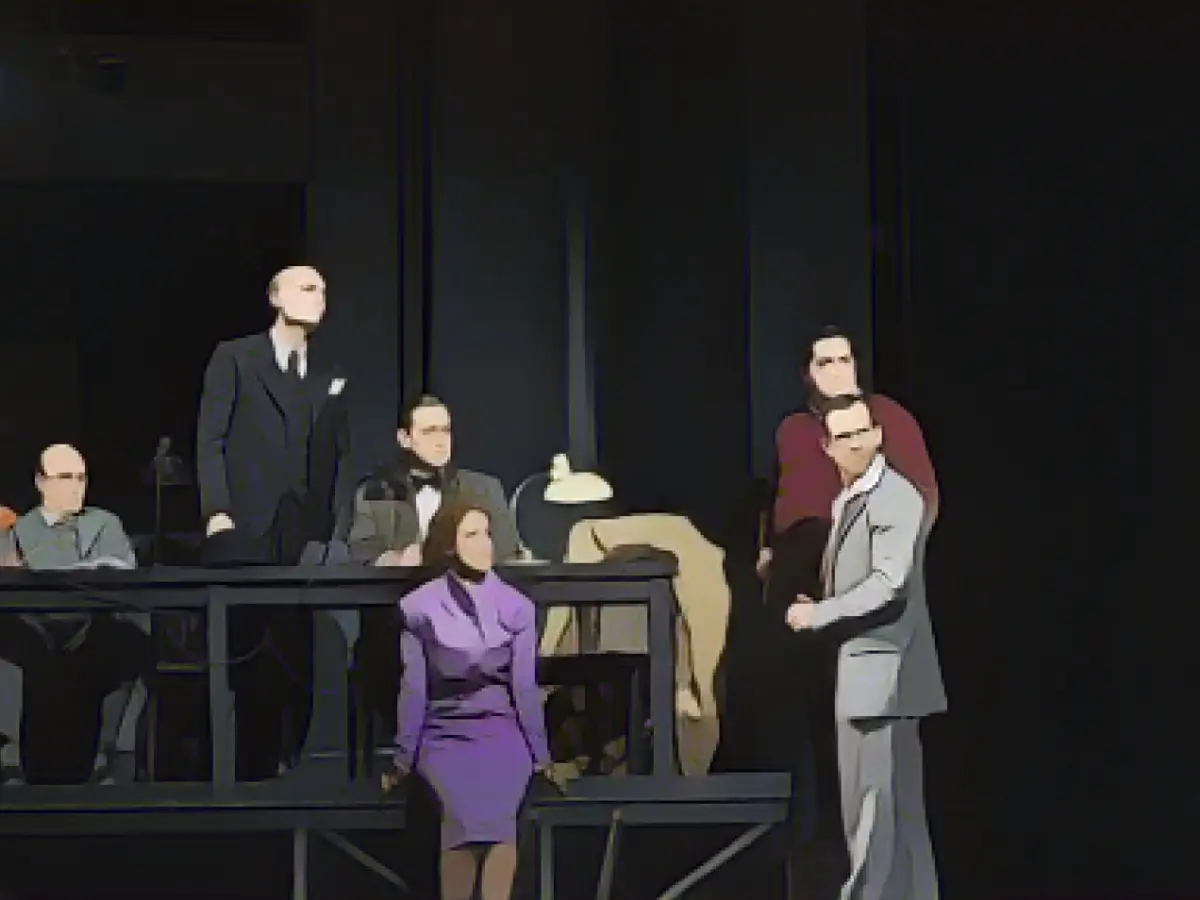Operetta - Volksoper Vienna comes to terms with its own Nazi past
The Volksoper Wien has staged an unusual operetta with an unusual purpose. With the new work "Let's forget the world - Volksoper 1938", the traditional house is coming to terms with its own Nazi past and commemorating its artists who were expelled or murdered because of their Jewish origins. The production, which draws its energy from the tension between a wholesome operetta world and cruel history, was met with long applause at the premiere on Thursday evening.
Dutch director Theu Boermans built his play around the last operetta production that was staged at the Volksoper in 1938, shortly before the so-called Anschluss of Austria to Nazi Germany.
This work was entitled "Gruß und Kuss aus der Wachau" and was written by the composer Jara Benes. Boermans lets the audience participate in the rehearsals for this light marriage and love story at the time, and in the various reactions that National Socialism triggered among the artists of the Volksoper - from enthusiasm and followership to solidarity with Jewish colleagues who had to flee or were deported.
"It's magnificently done - and harrowing"
Israeli-born Keren Kagarlitsky created musical contrasts as a composer and conductor by combining the partly jazzy melodies of Jara Benes with her own music and works by Schönberg and Mahler for the new production "Lass uns die Welt vergessen". Film footage of Hitler's invasion of Vienna and of concentration camps further intensified the tension between light operetta fare and the horror of the Nazi era.
The operetta genre fits "almost perfectly" in today's world, in which topics such as war, the pandemic and the environment are at the forefront, said Volksoper director Lotte de Beer. "It's therapeutic to laugh together about the impossible that is happening outside," she told the German Press Agency.
The audience was moved by the fates of the persecuted artists, who were portrayed by their contemporary colleagues. There were also some descendants of expelled Volksoper artists in the hall, including conductor Kurt Herbert Adler, who plays an important role in "Let's forget the world". His son, the German opera manager Robert Adler, was visibly moved by the production after the final applause. "It's superbly done - and harrowing," he told dpa.
Kurt Herbert Adler managed to escape to the United States, where he managed the San Francisco Opera for decades. One of the librettists of "Gruß und Kuss aus der Wachau", Fritz Löhner-Beda, on the other hand, was deported. Today, he is not only known as the librettist of the Lehar operetta "Land of Smiles", but also as the lyricist of the "Buchenwald Song", which he wrote in the concentration camp of the same name. He was murdered in the Auschwitz concentration camp in 1942.
Read also:
- Caught up in the present: the end of "The Crown"
- 40 years of the music show "Formel Eins"
- These TV annual reviews will be shown in 2023
- Sky documentary: "23 - The mysterious death of a hacker"
The unique operetta production at the Volksoper Wien, titled "Let's forget the world - Volksoper 1938," addresses the theater's past under National Socialism. This production honors the Jewish artists who were expelled or killed, including Jara Benes, the composer of the last operetta staged before the Anschluss of Austria to Nazi Germany. Dutch director Theu Boermans weaves the tale around Benes' operetta "Gruß und Kuss aus der Wachau" and its impact on the Volksoper artists during that time.
The production features a blend of jazzy melodies from Jara Benes, Schönberg, and Mahler's works, contrasting the light operetta world with the horrors of the Nazi era. Audience participation and various responses from Volksoper artists to National Socialism are integral parts of the play, as enthusiasm, followership, and solidarity are portrayed.
The new work has been praised for its emotional and engaging narrative, prompting long applause at its premiere. It acknowledges the persecution faced by these artists, as portrayed by their contemporary colleagues in the enactment. The production has touched the hearts of many, including descendants of expelled artists like conductor Kurt Herbert Adler, who played a significant role in the production.
Source: www.stern.de








